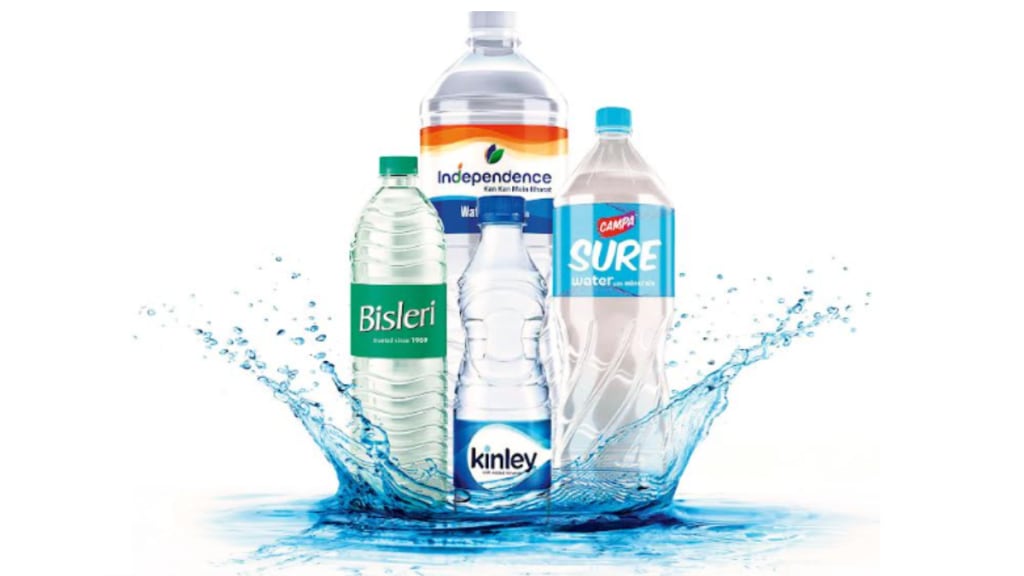If there’s one word to describe Reliance’s playbook, it has to be disruption. Now that the conglomerate has entered the bottled water market with Campa Sure and Independence, industry analysts expect to see the kind of disruption they witnessed in telecom, OTT and in FMCG.
The two brands offer packaged water at prices lower than most established brands. A one-litre bottle of Campa Sure will be sold at 15, while Independence will sell a 1.5 litre pack at20. Meanwhile, most brands in the category sell one-litre bottles at 20 and two-litre bottles at30. The pricing strategy is fairly similar to Campa Cola drinks that are priced at `10 for 200 ml, which subsequently forced Pepsi and Coca-Cola to drop prices.
According to brand strategy consultant Karthik Srinivasan, the price undercutting coupled with Reliance’s distribution strength will impact entrenched players. “Independence is a food brand and water is an extension. But Campa Sure is part of a beverage portfolio. Thus, Reliance is aiming to be stored in both the channels — stores that sell food products without a specific focus on beverages and those that focus exclusively on beverages,” adds Srinivasan.
While Independence is available pan India since its launch in 2022, Campa Cola has already acquired a 10-14% market share in the soft drinks category. Experts note that Reliance’s flanking strategy with two brands allows it to negotiate a larger shelf space with retailers.
Making a splash
As per industry estimates, the Indian packaged drinking water market is around 24,000 crore and a little over 35% of it is organised. Bisleri leads the 9,000-crore organised market with around 32% share, followed by Kinley (27%) and Aquafina (23%). Last year, India’s Food Safety Authority has reclassified packaged drinking water as ‘high-risk food’, triggering stricter safety checks and audits while also increasing the compliance costs for smaller brands.
Distribution can be make or break in this largely undifferentiated category. Bisleri has a wide network of over 5,000 distribution points and 120+ production plants. It has an extensive, three-tiered network of wholesalers, dealers and retailers and is supported by a large delivery fleet and presence in over six million outlets. It has also expanded reach through e-commerce, hyperlocal delivery, and partnerships.
Kinley’s distribution focusses on accessibility through a data-driven supply chain that reaches over 1.4 million retail outlets, including traditional kirana stores, modern trade and quick commerce. It also leans on Coca-Cola’s distribution network across six million retail outlets.
For its part, Campa Cola’s distribution focuses on mass market reach through general trade rather than modern trade. It leverages Reliance Retail’s network of stores (Fresh and Smart Bazaar), as well as JioMart and kirana stores. This has allowed Campa to reach 3,00,000 retail outlets within two years of launch, not common for FMCG brands.
Swift gains
While industry experts expect Reliance to make swift gains in the market, they don’t see that happening at a huge cost to established players. Local and regional brands, especially those priced cheaper than national brands, might be impacted, believes Sanjeev Shukla, a brand strategy and management consultant. “Market leaders are not likely to get impacted in the short to medium term. They have strong equity and consumers buy them because of their trust in the quality,” says Shukla, adding that the new brands would need time to establish their credentials as premium products.
The other challenge is that Reliance and Jio’s primary market in some product categories is small town and rural India, which is not big on bottled water. Price disruption is not a guarantee to win in these markets, points out Shekhar Suman, co-founder of Brandshark. Drawing comparisons with Jio’s telecom disruption, he says, “Jio didn’t just slash prices, it delivered good service and bundled an ecosystem. The same logic applies here. Reliance must crack the credibility code, build a ‘purity guarantee’ narrative, and break into prestige channels like airlines, hotels and modern retail.”
Suman adds that existing players must double down on the propositions that Reliance cannot assimilate overnight such as trust, heritage and innovation. “The worst move would be to fight Reliance on price; that’s a game they’ll always lose,” he adds. Brands like Bisleri, Kinley and Aquafina should focus on purity, sustainability commitments and investments in premium or functional water (such as mineral enriched or flavoured offerings).
